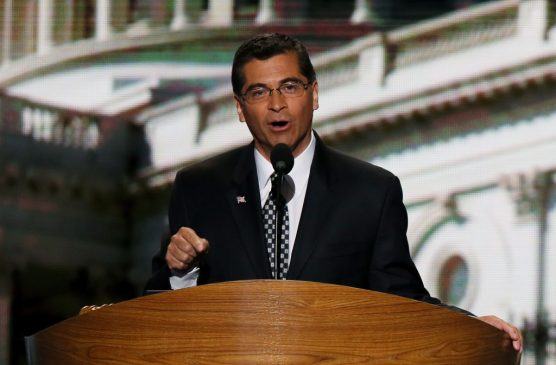By Helen Christofi
SAN FRANCISCO – A San Francisco Bay Area free-speech group sued California’s attorney general and justice department Thursday over the refusal to disclose records on police misconduct under a new police transparency law.
According to the complaint filed in San Francisco Superior Court, California Attorney General Xavier Becerra earlier this month refused the First Amendment Coalition’s request for records pertaining to police misconduct and excessive uses of force, and justified the decision by citing multiple lawsuits over Senate Bill 1421’s disclosure requirements pending in county courts across the state.
The coalition claims the police-backed litigation isn’t a valid reason for denying records under the California Public Records Act and wants a judge to order Becerra to release the requested information.
“This AG has a very good record on transparency issues and it’s unfortunate at this critical juncture that he has retreated from that,” Berkeley-based attorney Michael Risher, one of the attorneys representing the coalition, said by phone Thursday. “It’s completely contrary to the Legislature’s stated intent in enacting SB 1421.”
Introduced by state Sen. Nancy Skinner, SB 1421 opens up access to personnel records on police shootings, excessive uses of force that resulted in death or “great bodily injury,” and confirmed cases of sexual assault and lying by officers while on duty.
Numerous media outlets sought records once the measure took effect Jan. 1, but police unions in Contra Costa, Los Angeles, Orange, San Bernardino and Ventura counties sued to halt the demands. The unions say SB 1421 isn’t “retroactive” because the Legislature didn’t expressly state that it is, and that disclosing pre-2019 records will violate officers’ privacy rights.
Becerra’s office took a similar position, noting in a denial letter to the coalition the “significant privacy right” to personnel information officers have historically had in the state. The letter cites Government Code 6255, which allows an agency to withhold records if the public interest in withholding them “substantially” outweighs public interest in disclosure.
“[U]ntil the legal question of retroactive application of the statute is resolved by the courts, the public interest in accessing these records is clearly outweighed by the public’s interest in protecting privacy rights,” the letter states.
Becerra reiterated his position in an emailed statement Thursday.
“Historically, under state statute, peace officers have had a significant privacy right in their personnel records,” Becerra said. “Several cases have recently raised the issue whether SB 1421’s amendment to section 832.7 requires the disclosure of records relating to conduct that occurred before Jan. 1, 2019, which is SB 1421’s effective date. Given the ongoing proceedings, at this time, we are prepared to disclose only records beginning Jan. 1, 2019. When it comes to disclosing a person’s private information, you don’t get a second chance to get it right.”
On the phone Thursday, First Amendment Coalition attorney David Snyder disputed the litigation is a valid exemption for denying records under the state’s public records laws.
“If the fact that the Public Records Act or a portion thereof being litigated could provide the basis to not disclose records, agencies would be trotting that out all the time,” he said, because the law is challenged in court regularly. “It’s not a valid reason under the Public Records Act to not disclose records, so the AG has taken an odd position.”
Whether the privacy and Public Records Act arguments will survive judicial scrutiny is an open question. On Feb. 8, a judge in Contra Costa County roundly rejected both arguments and refused to issue a preliminary injunction for records held by six law enforcement agencies in the county. But according to Snyder, a judge in Ventura County earlier this week granted a preliminary injunction there based on similar arguments, though a written ruling has not yet been issued.
Regardless of what happens in court, both Risher and Snyder said Becerra’s decision has prompted a growing number of police departments to also deny access to records. Snyder said he believes Becerra’s office sent a direct advisory to law enforcement agencies articulating Becerra’s position, based on response letters Snyder has seen citing or quoting the same language in the letter the First Amendment Coalition received.
“The attorney general is the highest law enforcement officer in the state,” Snyder said. “By denying records…under SB 1421, he’s sending the message to police agencies around the state that they don’t have to comply with the law, at least right now.”
Like this:
Like Loading...
Related





 Tweet This
Tweet This Facebook
Facebook Digg This
Digg This Bookmark
Bookmark Stumble
Stumble RSS
RSS


























REAL NAMES ONLY: All posters must use their real individual or business name. This applies equally to Twitter account holders who use a nickname.
0 Comments
You can be the first one to leave a comment.